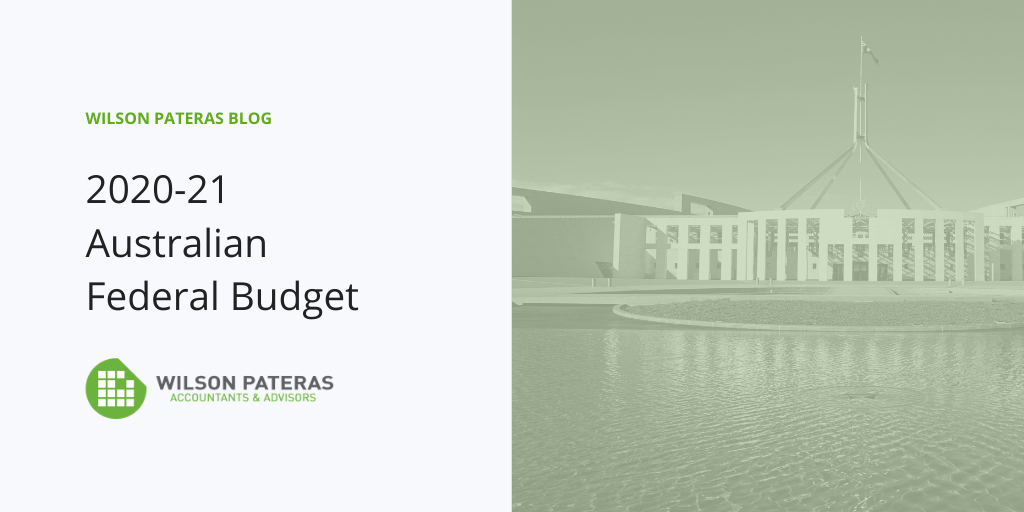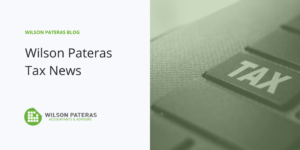
With the Australian economy having plunged into its first recession in nearly three decades, the 2020 Federal Budget contained several major announcements for both individuals and businesses. Key announcements of the 2020-21 Federal Budget included:
- tax cuts for individuals
- the JobMaker Plan to boost employment
- the Boosting Apprenticeships Wage Subsidy
- an enhancement to the instant asset write-off scheme for businesses.
- an enhancement to business loss write-off provisions.
- tax concessions for small to medium-sized businesses
We’ll now look at each of these announcements in more detail, as well as the forecast cost of the Budget.
Tax cuts
The government has brought forward tax cuts and increases to the low income tax offset (LITO) that were originally scheduled for 1 July 2022. These tax cuts and the increase to LITO will now be backdated to 1 July this year. The LITO will be increased from $445 per year to $700 for those earning less than $37,500.
The tax cuts will be in addition to the $1,080 low and middle income tax offset (LMITO) that is available for individuals earning a taxable income of less than $90,000 per year. A reduced LMITO is still available for taxpayers earning between $90,000 and $126,000.
The combined effects of the tax cuts, LITO and LMITO will result in the tax savings outlined in the table below. The amount you’ll save will depend on your taxable income for the 2020/2021 financial year.
| $40,000 | $1,060 |
| $60,000 | $2,160 |
| $80,000 | $2,160 |
| $100,000 | $2,445 |
| $120,000 | $2,745 |
| Over $140,000 | $2,565 |
The JobMaker Plan
The JobMaker Plan has been designed to boost the employment of younger Australians by providing Hiring Credits to employers for the next 12 months. These Hiring Credits are government wage subsidies to employers who hire eligible workers aged between the ages of 16 and 35. These workers must have been on one of the following government payments in the three months before hiring:
- JobSeeker
- Youth Allowance
- Parenting Payment.
The following hiring credits will apply:
- $200 per week for hiring eligible workers aged between 16 and 29.
- $100 per week for hiring eligible workers aged between 29 and 35.
What are the JobMaker eligibility requirements for businesses?
All businesses (except the major banks) are eligible for the JobMaker Plan, provided that they aren’t currently claiming JobKeeper payments. There is no turnover test.
In addition, eligible workers hired under the JobMaker Plan must be:
- employed for at least 20 hours per week
- be employed between 6 October 2020 and 6 October 2021
- additional employees for the business since 30 September 2020 (i.e. an increase in employee headcount), not replacement employees.
How businesses can apply for the JobMaker scheme
Employers will be able to apply for the JobMaker scheme from 7 December 2020 via the ATO’s website. The Hiring Credit will be able to be claimed quarterly in arrears. Any subsidies for eligible workers hired between 6 October 2020 and when you apply will be backdated.
Boosting Apprenticeships Wage Subsidy
Businesses who employ new apprentices and trainees between 5 October 2020 and 30 September 2021 will be eligible for a 50% wage subsidy under this program (up to a maximum payment of $7,000 per quarter or $28,000 per year). Up to 100,000 new apprentice/trainee subsidies are available.
How businesses can apply for the Boosting Apprenticeships Wage Subsidy
Businesses can apply by contacting their Australian Apprenticeship Support Network Provider.
Enhancements to the instant asset write-off scheme
The instant asset write-off scheme has been further enhanced until the end of the 2021/2022 financial year. Businesses with an annual turnover of up to $5 billion will be able to write off the entire cost of any business asset purchased as a tax deduction after 6 October 2020.
This is the second enhancement to the instant asset write-off scheme since the COVID-19 pandemic and the associated business restrictions first hit Australia. The first enhancement announced in March 2020 was an increase in the instant asset threshold value from $30,000 to $150,000 up until the end of December 2020.
Businesses who purchased individual assets valued at up to $150,000 between March 12 and October 5 2020 will still be able to write off the full value of each of those assets in the 2020/2021 financial year. All assets purchased between 6 October 2020 and 30 June 2022 will be able to be fully written off, no matter what their value. There is no cap during this time period.
Enhancements to business loss write-off provisions (Loss Carry-back)
Businesses with an annual turnover of up to $5 billion will be able to offset any losses they make for the 2019/2020, 2020/2021 and 2021/2022 financial years against tax paid in the 2018/2019 financial year or afterwards. This measure will enable tax refunds to be generated for businesses whose operations have been impacted by COVID-19 restrictions.
Tax concessions for small to medium-sized businesses (SMEs)
SMEs are defined as businesses with an annual turnover of between $10 and $50 million. Tax concessions announced for these businesses in the Federal Budget include:
- an immediate tax deduction for capital start-up expenses
- a fringe benefits tax (FBT) exemption on the provision of electronic devices or car-parking spaces to employees from 1 April 2021.
- simplified trading stock rules from 1 July 2021.
- A simplified accounting method to apply for the goods and services tax (GST).
What is the cost of all these announcements?
Of course, all of these announcements have a cost. A combination of increased government spending and lower tax revenue mean that Australia’s net debt is forecast to peak at $966.2 billion by the 2023-24 financial year. This deficit will be Australia’s biggest since World War II.
How we can help
Our experienced team of individual and business accountants at Wilson Pateras can help you to understand and access all of your entitlements from the 2020 Federal Budget. It’s important that you do because we are living in a much more uncertain economic environment. We can help you or your business to navigate through these times.
Contact us today for a complimentary, obligation-free consultation to find out how we can help you!
Any advice is of a general nature only and does not take into account the objectives, financial situation or need of any particular person. Therefore, before making any decision, you should consider your particular circumstances and read any relevant disclosure documents to see if any products or services is right for you or your client. Liability limited by a scheme approved under Professional Standards Legislation, other than for the acts or omissions of financial services licensees.



